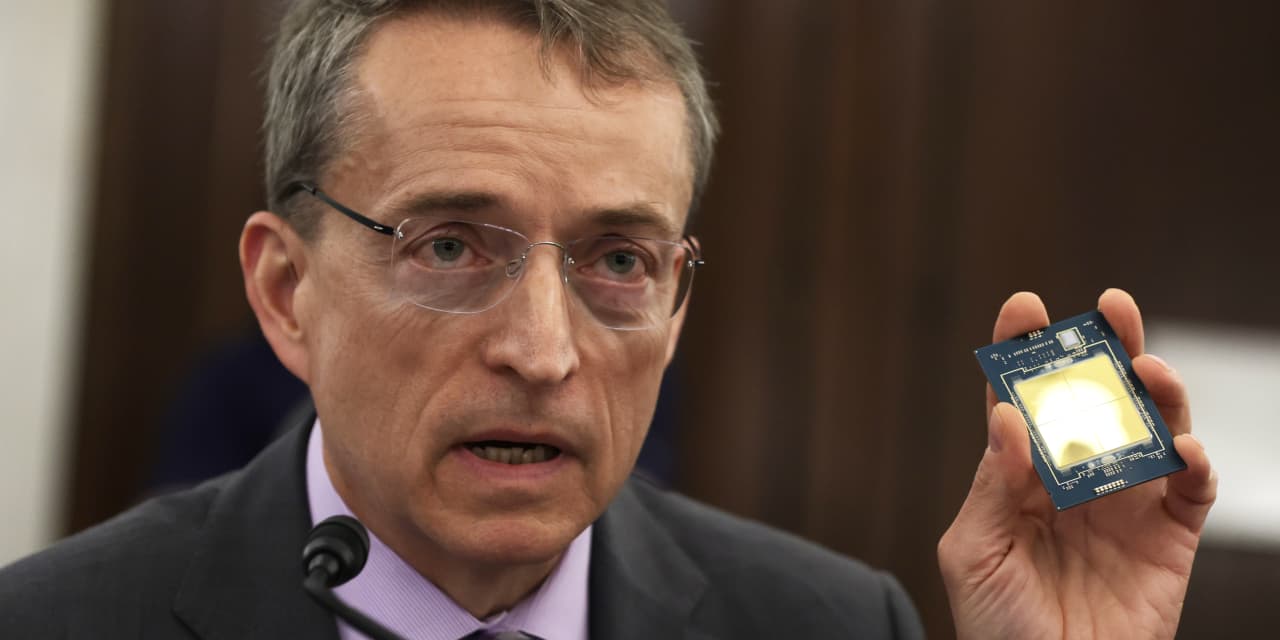This article is from the free weekly Barron’s Tech email newsletter. Sign up here to get it delivered directly to your inbox.
Winning Plan. Hi everyone. The CEO of Intel says the battle for chip supremacy is at a precarious moment. He’s optimistic the U.S. can prevail, but it will take a coordinated plan among industry and government. There’s no room for complacency.
“Oil reserves defined the policy for the last five decades and the geopolitics of the world,” Intel’s CEO Pat Gelsinger said during a Tuesday session at the Economic Club of New York. Today, he says, technology supply chains are the key.
“Manufacturing and R&D are more important for the next five decades. So let’s build them where we want them.”
Gelsinger, who became chief executive of
Intel
(ticker: INTC) in 2021, has been openly critical about U.S. industrial policy of the last 30 years, which allowed the export of the U.S. manufacturing base to Asia.
The results haven’t been great. Europe and the U.S. today have just 20% of the worldwide share of advanced chip factories, down from 80% in the 1990s.
Today, Taiwan alone controls about 80% of the leading-edge chip manufacturing market, according to Gelsinger, a recipe for disaster if geopolitical tensions worsen.
If Taiwan were to be blockaded for even a few weeks, he says, it could bring the global economy to a halt. “We need resilient supply chains. Those supply chains have to be in Europe, have to be in Asia, and must be in America,” he said.
Explicit policy support from the government is an important part of the answer. Gelsinger said he’s proud of Intel’s role in advocating for the Chips and Science Act that passed Congress last year and included roughly $50 billion in funding for domestic chip manufacturing. More still needs to be done, he added.
First, the U.S. needs to move faster in disbursing the Chips Act money and funding science research. He said Europe may hand out subsidies sooner than the U.S. even though the European Union’s own Chips Act passed a year later.
The Chips Act is the “most important piece of industrial policy since World War II,” he said. But “we have yet to fund and get the science piece [that can build] the seed core for decades of leadership.”
Second, there is a shortage of talent. Of the 115,000 new jobs needed by the U.S. chip industry by 2030, some 67,000 jobs will go unfilled, according to the Semiconductor Industry Association. The U.S. trains foreigners in its world-class education system, but immigration policies make it difficult for U.S. companies to hire them, even though many of those students want to work in the U.S.
“If you want to stay ahead in the race of technology, we must be investing in long-term research,” Gelsinger said. “I think we have to change our immigration policies. If the world wants to send us their best and brightest, let’s say yes to them staying.”
Intel says foreign nationals make up more than 60% of advanced STEM (science, technology, engineering, or mathematics) degree students at U.S. universities in the technical fields necessary for chip industry jobs. The company supports providing green cards to students who earn these advanced STEM degrees.
With the right actions in funding and policy reform, Gelsinger said the U.S. and Europe could have a 50% share of the advanced chip-making market by the end of this decade.
“I truly believe this could be the best cycle of innovation, combining good industrial policy with numerous ares of innovative leadership and long-term research investment,” he said.
The chip industry has a plan. It needs more help from lawmakers.
This Week in Barron’s Tech
Write to Tae Kim at [email protected] or follow him on X at @firstadopter.
Read the full article here










